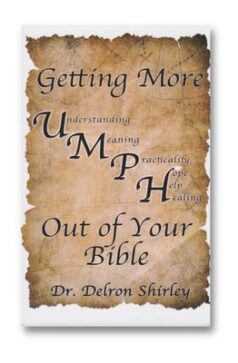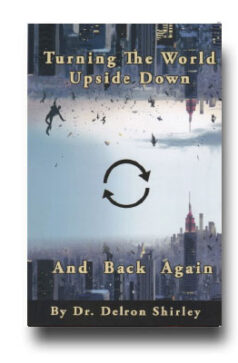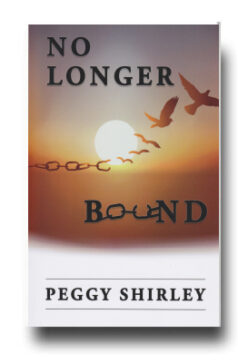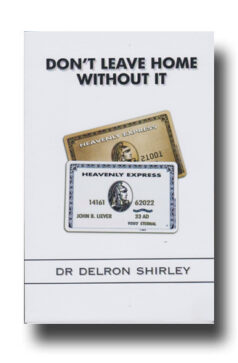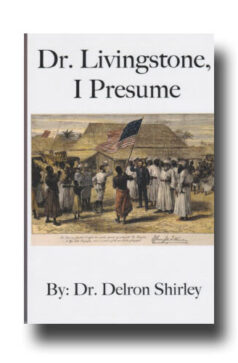The one failure that comes to mind immediately when we think of King David is his moral failure with Bathsheba. The eleventh chapter of II Samuel records the story of how David spied her one evening as she bathed on the roof of the neighboring villa. Some students of the scripture and history have suggested that there might be more to the story than we notice on the first reading. They have suggested that this was not just her regular evening bath but was rather a special monthly ceremony she practiced to cleanse herself after her menstrual period. Assuming this to be the case, these scholars go on to surmise that David may have noticed this practice and even made a mental note of when to expect her next “performance.” These students of the ancient culture then go on to suggest that David had actually planned to be there for the next “curtain call.” They offer this as the explanation as to why David did not go out to battle with his men as was the custom of the kings (II Samuel 11:1) and the practice he followed until the very last days of his life when his men insisted that he remain behind for his own protection (II Samuel 21:17). Regardless as to whether this was a monthly or a nightly ritual with Bathsheba, the possibility remains that the fateful evening that has become a part of history was not the first time the king had noticed his neighbor’s beauty. If this is the case, we see that the trap into which the king fell was one of his own making. Jesus taught us that looking upon a woman to lust after her is as great a sin as actually committing adultery with her. (Matthew 5:28) Notice that He didn’t say “look upon a woman and lust after her,” rather He said, “look upon a woman to lust after her.” The implication in His wording is that there is a difference between premeditated lust and instantaneous lustful thoughts that come when caught in a surprise situation. Did David know what he could expect to see when he looked over his portico that evening? Did he schedule his evening walk just so that the timing would be right for the “opening act”? Did he stay home from the battle because he wanted to be in town for the “next scheduled performance”? We will never know for sure; however, if this is what happened, we see that the king was subject to a premeditated lust that destroyed him.
Yet even if the lust was not something that the king had scheduled into his life, the episode exposes a serious flaw in David’s moral fiber. An old saying tells us that we can’t stop the birds from flying above our heads, but we can stop them from building a nest in our hair. Even if this was the first time he had ever noticed his voluptuous neighbor and this was the first time he had ever had wondering eyes, he was still guilty of not shooing away the birds of lustful thoughts before they had a chance to build a nest in his heart. James 1:14-15 tells us that sin is the result of temptation that is the product of lust. He adds that we are “drawn away by our own lust,” suggesting that lust is not so much an external temptation as it is an internal motivation. At first sighting of the maiden washing herself, he could have quickly turned away and gone back to bed; however, he chose rather to take a second glance, then a longer more intense look, then a stare, then a gaze before he returned to bed — unfortunately, he was not alone when he finally fell asleep again. David had followed the predictable pattern of allowing a temptation to take root inside his heart and develop into a lustful attitude that eventually resulted in acted out sin. David’s most famous flaw was his moral failure with Bathsheba — the outgrowth of his lack of personal discipline over his thought life.
Intimately linked with his moral failure with Bathsheba was his gross failure in the arena of loyalty as demonstrated in his dealings with Uriah, Bathsheba’s husband. Uriah, one of David’s most able and dependable warriors, was away at battle at the time of the incident between his wife and the king. When David learned that Bathsheba was pregnant, he called her husband home from the front in order to make it appear that he was the father of the child. The scriptures record a remarkable story of Uriah’s loyalty to the troops when he refused repeated offers to be with his wife, stating that he could not enjoy privileges that his men were being denied. What a picture of contrast between Uriah who refused his legitimate benefits in respect for his suffering troops and the king who indulged in not only his legitimate privileges but extended into illegitimate pleasures while his men suffered deprivation at the front. The end of the story is that when David could think of no other solution, he had Uriah killed and married Bathsheba with the hopes that no one would count to see if there were nine months between the royal wedding and the birth of the baby. In the most heinous deed of his career, David sent his loyal servant back to the front bearing his own death warrant.
Closely tied to his loyalty failure is David’s failure with all his men. As we have already noticed, this episode in the life of David occurred at an point when he did not lead his forces into battle. These were the men whom he had taken when they were the misfits of society and had turned them into mighty warriors. They were ones whom he had personally transformed into heroes, yet this time their mentor was showing an example of a man who was more interested in his own personal leisure than their need for leadership. He had tragically failed them by abdicating his position of personal leadership before them at the front.
One other victim of this tryst is spoken of in Psalm 55:12-21. Although this passage may seem at first to refer to how someone else betrayed David, a little study of the historical background of the verses will show us a totally different side to the story.
For it was not an enemy that reproached me; then I could have borne it: neither was it he that hated me that did magnify himself against me; then I would have hid myself from him: But it was thou, a man mine equal, my guide, and mine acquaintance. We took sweet counsel together, and walked unto the house of God in company. Let death seize upon them, and let them go down quick into hell: for wickedness is in their dwellings, and among them. As for me, I will call upon God; and the LORD shall save me. Evening, and morning, and at noon, will I pray, and cry aloud: and he shall hear my voice. He hath delivered my soul in peace from the battle that was against me: for there were many with me. God shall hear, and afflict them, even he that abideth of old. Selah. Because they have no changes, therefore they fear not God. He hath put forth his hands against such as be at peace with him: he hath broken his covenant. The words of his mouth were smoother than butter, but war was in his heart: his words were softer than oil, yet were they drawn swords.
In this passage David expresses his overwhelming anguish over being betrayed by a close friend and confidant — one who had been a counselor to him and had shared the intimacies of life with him, even including worshiping together. Most Bible scholars conclude that this Psalm refers to Ahithophel who had been one of David’s most trusted counselors but turned traitor when Absalom mutinied against his father. (II Samuel chapters 15-17) Certainly, we can relate to the emotional trauma David would have experienced when he learned that such a close associate had turned against him. However, there is another side to the story that we must also understand. Ahithophel was Bathsheba’s grandfather. In II Samuel 11:3, we learn that Bathsheba was the daughter of Eliam, and II Samuel 23:34 tells us that Eliam was the son of Ahithophel; thus Ahithophel was her grandfather. Apparently he had held a secret grudge against the king for many years and finally found a way of taking his revenge. If we can empathize with the sorrow in David’s heart over the betrayal of Ahithophel, I believe that we can just as equally relate to the gnawing turmoil in Ahithophel’s heart over the way David had violated his innocent granddaughter. The difference between David and Ahithophel is that David submitted his disappointment to God for healing, but Ahithophel bottled it up until it eventually drove him to suicide.
On top of all this, we see a failure against his position as king, his entire constituency, and himself in that he dishonestly tried to cover up the whole event. It was only when the prophet Nathan exposed the sin (II Samuel 12:7) that David was willing to admit and address his flaws.
Yet, his faults against Bathsheba, Uriah, his troops, Ahithophel, and the nation he was called to lead were not nearly as serious as his failure toward God. David himself realized this when he framed the prayer recorded in Psalm fifty-one in which he repented for these atrocities. In verse four, David says, “Against You and You alone have I sinned,” indicating that he realized that the incidents involving adultery with Bathsheba, the murder of Uriah, his disloyalty to the troops, his betrayal of Ahithophel, and his disregard for the people he was commissioned to serve were only outward manifestations of the inward sin he had committed against God Himself. Apparently, David had slipped away from the intensity in his fellowship with and worship of God. He ends the psalm with a renewal in his commitment to worship, suggesting that he realized that his basic flaw was failing to pursue after the heart of God. When he spoke of his sin against God, David’s word for “sin” can be interpreted with either meaning — “to miss the mark” or “to rebel.” In essence, he had missed the mark by failing to intently follow after God’s presence resulting in a rebellion against His ways.
I said, LORD, be merciful unto me: heal my soul; for I have sinned against thee. (Psalm 41:4)
But David’s failure toward God can also be seen as a failure toward himself. Through this sin, David came dangerously close to experiencing the Holy Spirit’s departing from his life because of his rebellion against God and society. The prayer he prayed for restoration after these heinous sins reveals how close he had come to slipping over the edge. But first, let’s take a quick look at exactly what happened inside David’s soul during this ordeal.
Then will I go unto the altar of God, unto God my exceeding joy: yea, upon the harp will I praise thee, O God my God. (Psalm 43:4)
“God, my exceeding joy” — what a wonderful way to express our relationship with God! To David, the Lord was not a source of joy or his reason to be joyful — but joy itself. Additionally, it was not what God did for David, or even the fact that they had a relationship, that made him joyful; it was God Himself that was the Psalmist’s joy. On top of all this, God was not only David’s joy; he was his exceeding joy — joy beyond measure. Yet David’s life was not always characterized by joy. In the Psalms, he often speaks of sorrow and anguish. (verses 13:2, 38:17, 39:2, 55:10, 107:39, 116:3, 119:143) At one point, he even described his internal agony as so severe that he said that his tears figuratively made his bed to swim. (verse 6:6) In Psalm 38:3, he mourns, “There is no soundness in my flesh because of thine anger; neither is there any rest in my bones because of my sin.” In Psalm 32:3, he laments that, his very bones grew old through his “roaring” (loudly vocalized agony) all the day long. In what seems to be a contradiction of terms, he says that the reason behind these internal roarings is his external silence. His silence was his refusal to confess the sins he had committed during this snowballing escapade. (verses 1-2) His silence about his sin filled him with sorrow, causing him to roar with agony and float his bed with his tears. His whole problem was that he was cut off from Joy Himself. His reconciliation prayer describes how he renewed his relationship with God and was restored to joy.
Make me to hear joy and gladness; that the bones which thou hast broken may rejoice…Cast me not away from thy presence; and take not thy holy spirit from me. Restore unto me the joy of thy salvation; and uphold me with thy free spirit. (Psalms 51:8, 11-12)
In another psalm, David seems to have realized where he had gone wrong and requested divine protection to guard himself against being trapped by the same pitfalls again. The Living Bible translation of Psalm 25:21 reads, “Assign me Godliness and Integrity as my bodyguards, for I expect you to protect me.” Interestingly, these are the same two bodyguards that God instructed David’s son Solomon to employ. (I Kings 9:4) Having a bodyguard means the difference between life and death. When President Abraham Lincoln’s bodyguard stepped out of the box in the Ford Theater, our sixteenth President was vulnerable and soon lay on the floor subject to John Wilkes Booth’s bullet. President Ronald Reagan, on the other hand, survived an assassination attempt upon his life in 1981 when James Brady bravely threw his body as a human shield in front of John Hinckley Jr.’s bullet. When Godliness and Integrity were lacking, David was subject to the enemy’s attacks.
The term “integrity” means completeness. It implies a harmony or complete relationship with oneself. A person of integrity is one who is in harmony throughout his total personality. He doesn’t think one thing and say another. He doesn’t act one way and feel another. Integrity doesn’t allow you to be dishonest or compromising. The term “godliness” may better be translated “uprightness,” meaning equity. It means to be truthful and fair to all men. Godliness demands that you live like God in front of your fellowmen, not treat them like the devil. While integrity is being honest with yourself, godliness is being honest with others. These two traits in David’s lifestyle would have kept him safe from the assassination attempts of the world, the flesh, and the devil. In Psalm 119:11, he adds that the way he intended to ensure his protection against future sin was to hide the Word of God in his heart. Certainly, the engrafted Word of God produces integrity and uprightness.
When the king’s wandering eyes brought his neighbor’s wife to David’s bedroom and his scheming heart sent his neighbor to his grave, the prophet Nathan declared that the sword would never depart from David’s house as a punishment for his sins. (II Samuel 12:10) As a result of this sin, David was never able to know peace from his conflicts and conquests, a factor that kept him from being able to fulfill one of the greatest of his dreams — that of building a temple in Jerusalem to house the Ark of the Covenant. (I Kings 5:3; I Chronicles 22:8, 28:3) The impact of this story is that David had drawn up all the plans for the temple and collected billions of dollars worth of gold, silver, and building materials for this project, but he was forbidden from initiating the actual construction. (I Chronicles 15:12, 22:14, 28:11-21, 29:2-3) His sin of internally allowing his heart to be turned away from God resulted in David’s being disqualified from the one project that would externally demonstrated his passion for Him.



